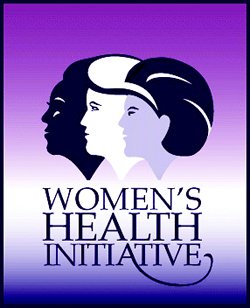New study results find a shocker: being a drug skeptic is a healthy thing
 The Women's Health Initiative, which has been researching and publishing findings on women's health since 1991, has recently come out with some new results, involving the doses of estrogen and progestin that women who are menopausal should take in order to maintain healthy hormone levels--and so reduce risks of things like breast cancer and strokes. But the study, over the years, has had the additional effect of leaving women often confused or cynical about what it all means, what is good or bad for them.
The Women's Health Initiative, which has been researching and publishing findings on women's health since 1991, has recently come out with some new results, involving the doses of estrogen and progestin that women who are menopausal should take in order to maintain healthy hormone levels--and so reduce risks of things like breast cancer and strokes. But the study, over the years, has had the additional effect of leaving women often confused or cynical about what it all means, what is good or bad for them.
The short answer, as a recent New York Times report suggests, is that--shocker--every woman will respond to certain doses and combinations of hormones differently. The study has not been a bad thing, and we have learned much about mid-life women's health than we did before it began, when women of all ages were prescribed all kinds of doses in the 1980s.
The real crux of the article, for me, highlighted what I think is the much deeper problem than thinking of ways to lower our risks for certain conditions: we turn too quickly to a pill that we hope shall fix it all. Andrea Z. LaCroix, who is quoted below, is the lead author on the Journal of the American Medical Association study and a professor of epidemiology at the Fred Hutchinson Cancer Research Center in Seattle.
The fact that women are frustrated by the twists and turns the study has taken, and possibly more skeptical about the drug industry, may be a good thing, said Dr. LaCroix.
“If women are more skeptical then I think that’s a good outcome,” said Dr. LaCroix. “We have a history in our country of wanting to believe that if we take a pill, we can prevent bad things from happening to us, and wanting to take those pills before the evidence comes in.”
The most compelling lesson of the research should be that science is always worth the wait. Consumers should insist that doctors make recommendations based on scientific evidence, say investigators, rather than allowing drug companies or marketing hype to dictate patients’ health care choices.
Couldn't have said that better, myself. Something I continually find interesting and worthy of some serious discussion in the United States. So I needed to share. Let's consider medical research and new drugs as absolutely worthy investments of our scientific talents, and use them to do amazing things to help people who have ailments and diseases. But let's approach new treatments with sounds minds, patience in allowing the drug testing time, and a proper mindset that no medication is a miracle drug on its own, right out of the box. Most of all, let us not get bedazzled by the marketing and media streams that sell drugs to consumers as though they are coffee pots or lawn mowers or a new haircut. The whole industry of drug marketing is pretty appalling.
So it it great to hear that medical studies and drug research results actually bring us pause, make us skeptical. That is crucial.
